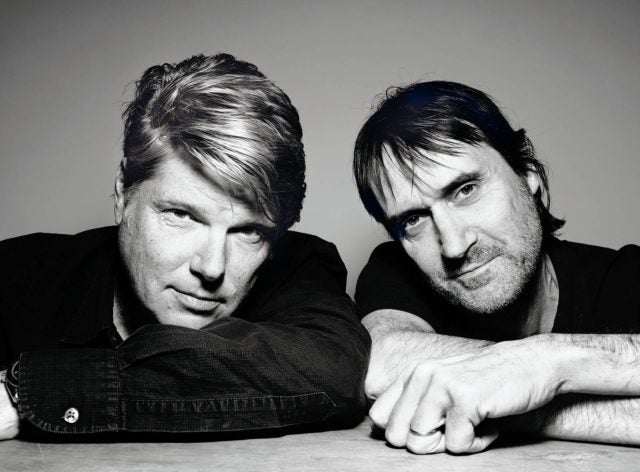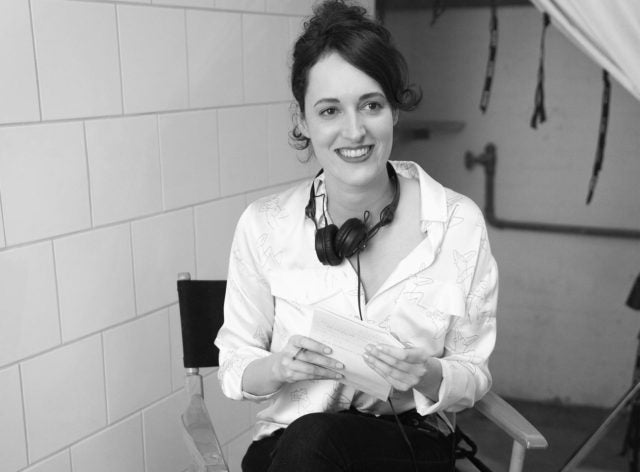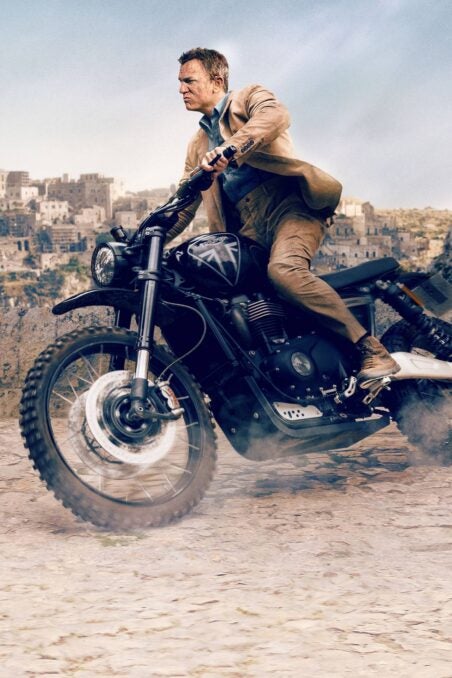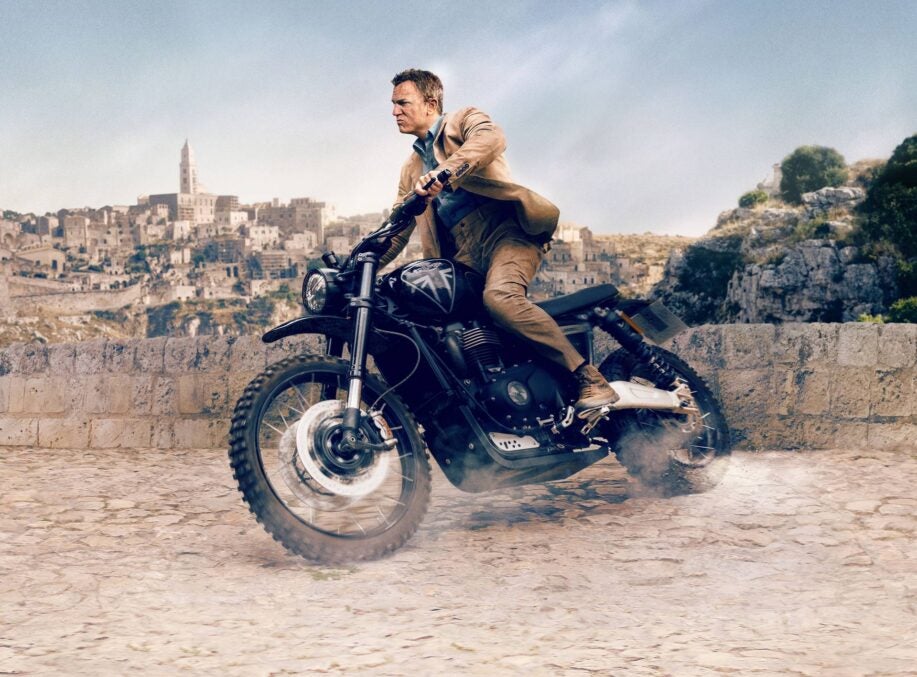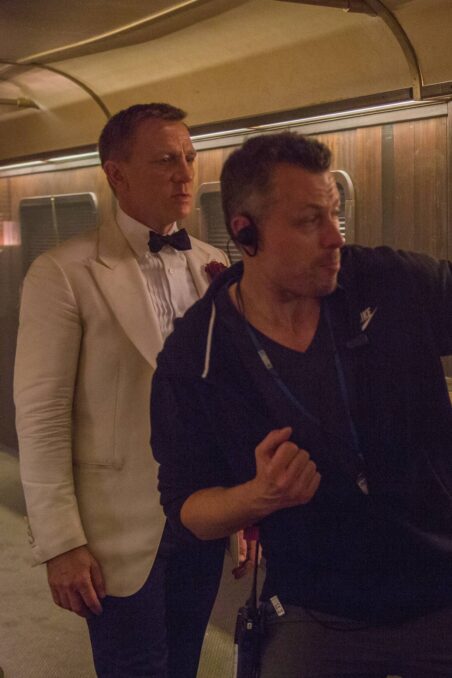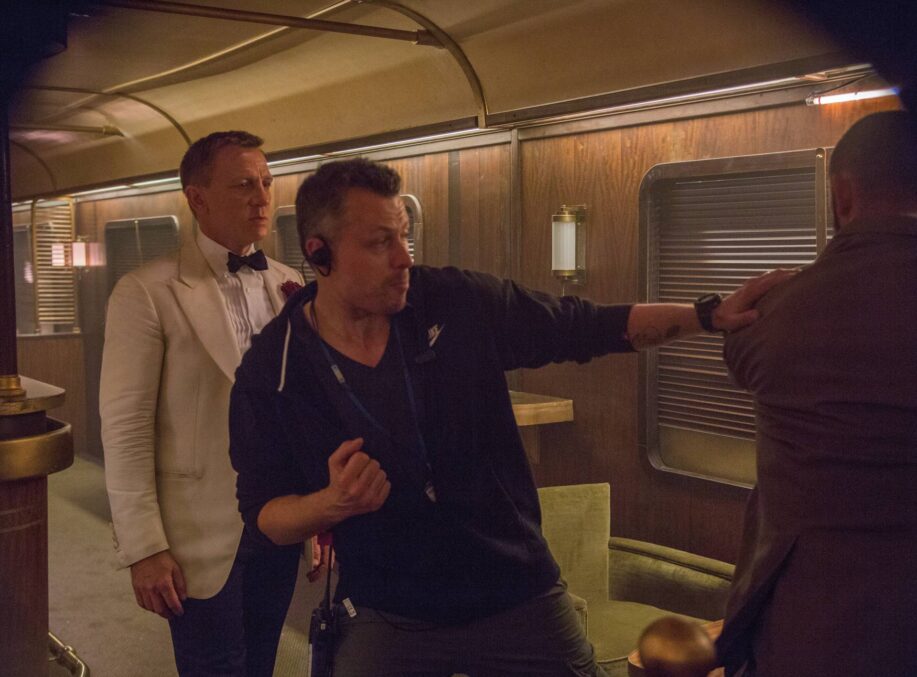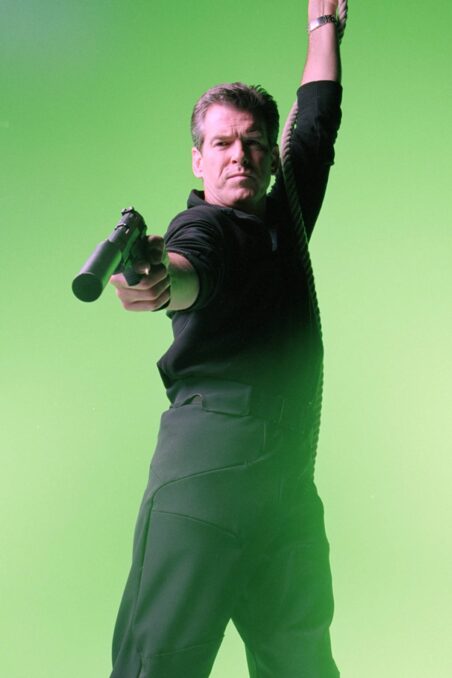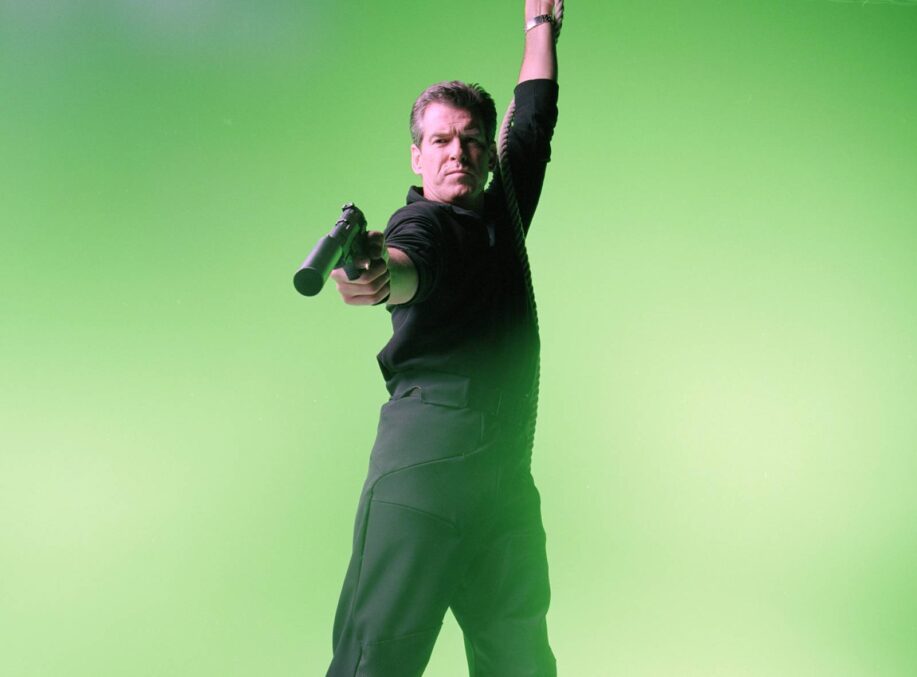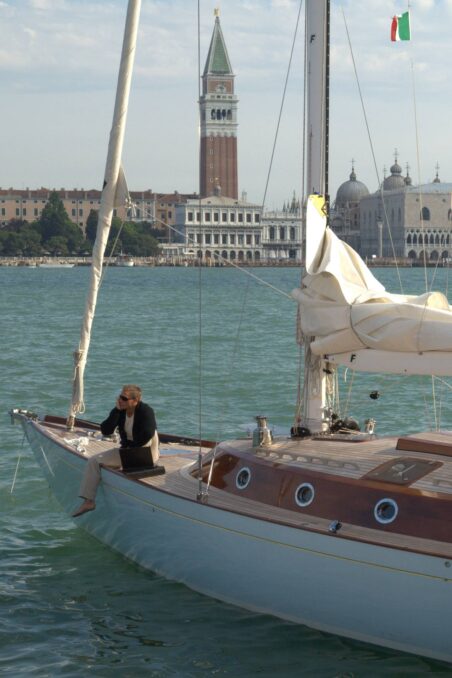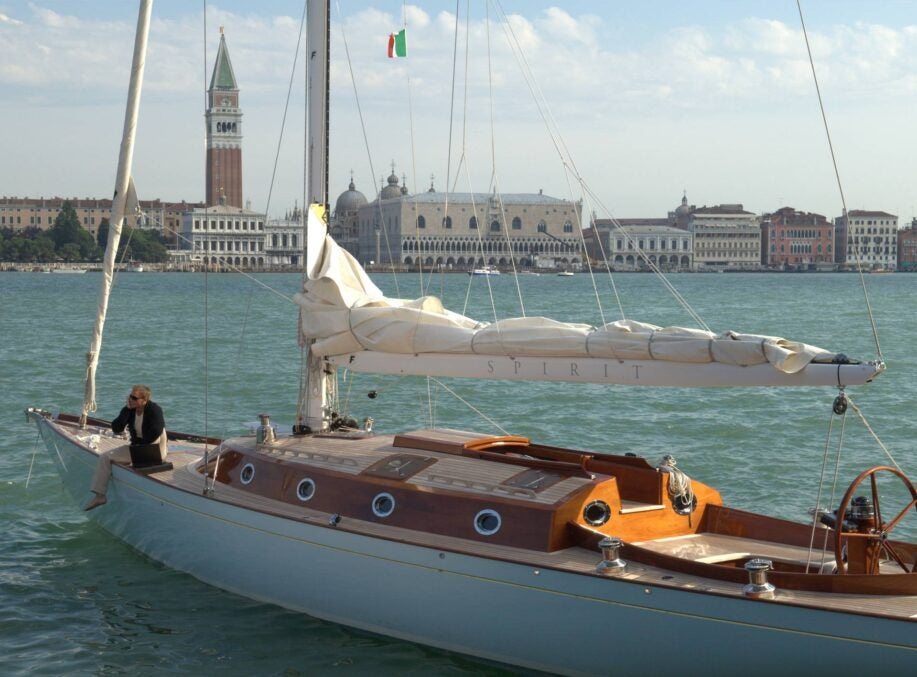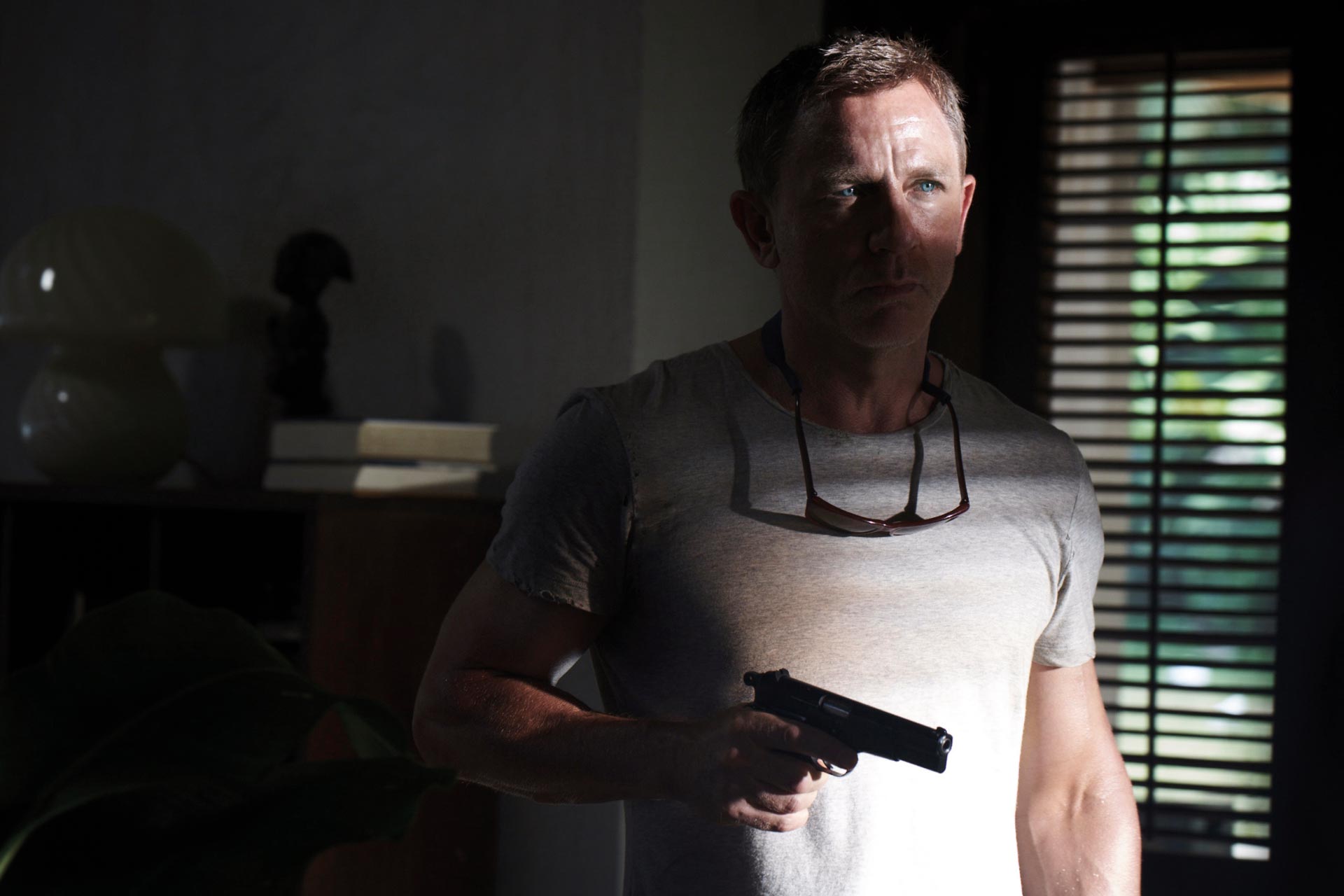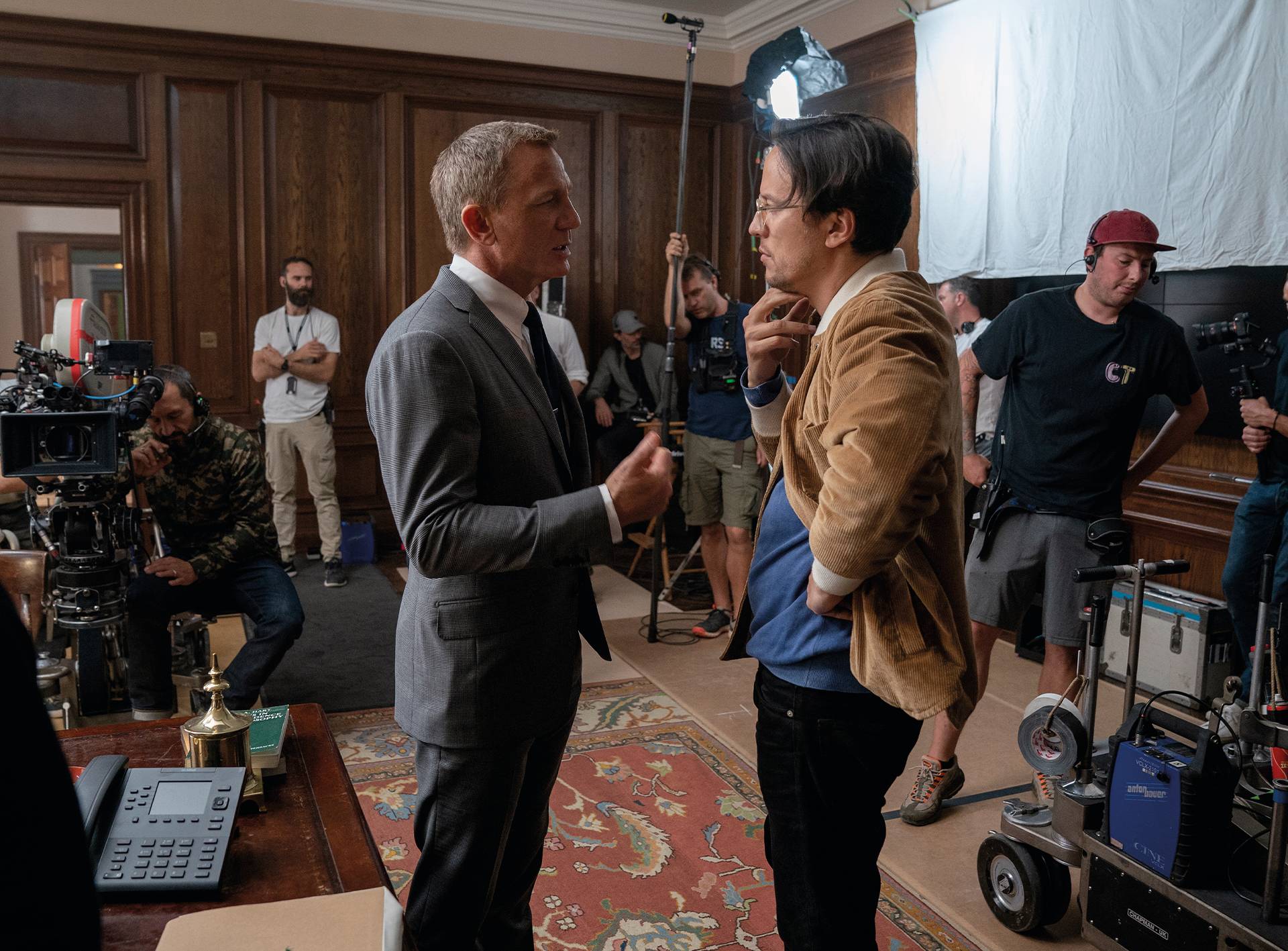

What It Takes To Write A Bond Film
With Cary Fukunaga, Neal Purvis, Robert Wade, and Phoebe Waller-Bridge
The four writers recently talked to 007.com about their contributions to No Time To Die, their own history with the series and what Bond means to them.
Cary, how was the writing process on No Time To Die?
Cary: Writing to me is essential to the filmmaking process. I can’t really imagine directing something that I haven’t written. Part of that is down to the stages in which I start to visualise what a film is going to look like. It is driven by those moments of writing, shaping and where we enter the scene and how that scene ends but also the surprises that happen in the middle. Those are things that come out of the writing process. When I’m writing a scene, sometimes things happen from my fingertips that dialogue or blocking directions or things I didn’t even think about prior to writing it come out of that process. I’ve never really been able to do things where I just inherit a script and do it so to me, it’s kind of one of the most fundamental and essential parts of being a filmmaker.
How was it collaborating on No Time To Die?
Cary: In this case, obviously, it’s a large collaboration and we worked with writers who worked on Bond before, writers who have never worked with Bond before and also with the producers and with Daniel. A lot of people have their idea about how a movie should be and it’s very interesting, trying to figure out between all these different ideas and all these wants and desires, how to make something that feels cohesive, that feels like it has a vision that’s moving towards a singular theme and ending. The joys of collaboration are the surprises and the inspiration that one offhand remark might spark a completely different direction in the script. The most important parts of storytelling start in that writing process.
So Neal and Robert: seven Bond films. Where do you start?
Neal: Our process has always been to be aware of what’s going on in the world but also trying to think what could happen, what are we all worried about?
So do ideas start in reality?
Neal: It is stuff that you’re researching. You get interested in a topic. Obviously you’ve got politics and what’s happening and you need to reflect that in some way. Hopefully we’ve done that in a non heavy-handed way in the new movie.
No Time To Die has a virus that could spread around the world… how did that come about?
Neal: Well, we’d had the idea some time ago about what was, in the old days, called a gene bomb which could affect or kill people of particular genetic makeup but we were always uncertain to what extent that was really true or likely. Then Michael G. Wilson mentioned to us that he’d read about something that actually was going on in the medical profession. DNA targeting for illnesses and ailments. That was for good purposes, obviously and so we all thought we can do something similar but have a malevolent reason behind it. A malevolent plan like Heracles.
Robert: We spent a lot of time trying to think what bad things could happen to the extent that, with Michael G. Wilson, we went along to think tanks and were part of the brainstorming of what’s the next big threat. It’s because one is always thinking about the stuff that is just around the corner. Sometimes it’s spot on.
How do you balance keeping things fresh and preserving the heritage of Bond?
Neal: Bond is its own genre. That’s not to say you can’t kind of introduce things that then can become part of it. So it’s a case of trying to be different, but familiar. It’s a strange thing that you’re dealing with so many familiar icons that the audience has grown up with. So, for example, in Skyfall, when 007 opened the garage doors and looked at the Aston Martin and a little bit of the Bond theme plays, it gets such a good reaction in the cinema.
How have you evolved Bond in Daniel’s tenure?
Robert: Daniel is really good at making Bond feel like a real person. After Die Another Day it just seemed right to get back to basics. And so Daniel was fantastic in that way and that meant that we’ve had a starting point with him. It’s interesting that the word reboot didn’t exist at that time. It was a computer term, but we’d never heard of it. We didn’t know that we were doing a reboot, but definitely with Daniel’s tenure, there’s been a range of journeys for him to go through.
What was it like to see No Time To Die finally come out?
Neal: I still couldn’t believe that the secrets in the film had been kept secret all that time. It was a relief that it was so well received. We knew that the few people who had seen it were very positive about it and so they were confident. But yes it was great that it went down so well.
How important was it for you to make Bond fall in love?
Robert: I think that at the end of Casino Royale, he realises that he can’t have a normal relationship and he can’t have love. He’s also realised that he knows what he’s protecting now. So that gave us a starting position to then move forward.
Neal: The journey for Bond in Casino Royale is that he’s an orphan. He’s loyal to Her Majesty in it but basically he doesn’t really understand life. And then he meets this other orphan and they fall in love and he suddenly apprehends what life could be like. If you were an orphan, you’ve never really known a loving environment and then suddenly you could have your own little life. And so he understands what life is about and then it’s taken away because he discovered that she was always deceiving him, even though she may well have actually loved him, but he dons his armor. It’s a line in the film, but that’s when it happens. And he says ‘The bitch is dead now.’ which is the last line of the novel and it was very important to us that it would be in the film. He now understands that this is real life, that people do fall in love. He can never allow himself to do that because it made him vulnerable and he can’t go around the world protecting that. And so finally in Spectre he meets someone and he starts to think maybe I can walk away from this for love. So that’s the journey.
Robert: At the end of the Casino Royale book, he’s determined to find and hunt down the arm that holds the whip and gun.
Neal: That’s his quest, isn’t it?
Robert: Yeah. That’s the arc that we’re trying to get is that he can’t stop doing that even if he’s got a relationship and even if he’s retired.
When you’re writing does practicality play a part or is it for other people to worry about?
Robert: Yeah. From our first film The World Is Not Enough, the chase down the Thames apparently involved so many different kinds of port authorities, it’s a really, really difficult thing to do and to go past the Houses of Parliament as well. It’s difficult but they’re the only people I think who could have pulled that off.
Would you say it’s not something you always experience on other films?
Neal: That’s right. It really is. The biggest buzz is that you come up with something outlandish like a sinking palazzo and then all these people make it happen. And it’s the most extraordinary level of detail and ingenuity. What you want to do is give them something to get excited about. Some impossible challenge.
So how did No Time To Die’s ending come about?
Neal: Barbara had mentioned it to us when Daniel first came on during Casino Royale. We’d actually completely forgotten that. When it came up again, it’s such a bold idea. You can’t just throw yourself into it. There were lots of different ways you could play it but we actually came down on the side of this missile ending from a naval vessel quite early on. That kind of environment felt right and then knowing that something’s coming is a really good way of keeping the tension and really makes you think that it’s not really going to happen.
Robert: The other thing, dramatically, in terms of having a missile coming in means that you can also have M and Moneypenny with Q. That’s all part of the moment. I think that is just a rich way of doing it.
It is quite dramatic as a conclusion.
Robert: There are ways of filming a missile landing that could have an ambiguity to it and I think in my mind, we actually wanted the image to be beautiful – of air catching fire and have a sort of lyricism to it. That way you don’t categorically see him die. I think the way that Cary chose to shoot it was very unambiguous and was quite shocking because it does allow a Deus Ex Machina kind of thing. People seem to have been caught in the emotion and I think the same thing happened with Skyfall because you’re not expecting Judi Dench to die. That got people to go back and see it again so they could go through it and understand the journey that they’ve been on once again.
How has it been working with Daniel throughout his tenure as 007?
Robert: Well, it’s only when you look back on it, you realise what you have achieved because at the time you don’t know what’s going to happen. We never planned to say, ‘Right, well, we’re going to write all of Daniel’s pictures.’ However, it was great to be back on No Time To Die as this is the film that tells the end of his story. To realise, yes, that we’ve got this arc that runs right across the whole tenure for Daniel, and to have the opportunity to finish it, was terrific.
Neal: It is incredible what Daniel has achieved really in bringing humanity to James Bond. He worked tirelessly on all his action sequences and then to be able to show the style and also the suffering, is an enormous achievement. I think to have done it for so long and so many films, in this day and age is impressive. Finding someone with the charisma and the acting skills to take it over will be a difficult task.
Phoebe, what was your take on the Bond character?
Phoebe: I’ve always loved Bond. I loved the character and all his complexities but also just the timeless classiness of him, which is why I think he’s lasted so long because he is classy amongst everything else and when that’s done right, it is timeless. Sean Connery was my big one. I think one of my really early memories was seeing him with the seagull on his head. I think I was quite young when I saw that and then he steps out of the dry suit and and he has on this crisp, white beautiful tuxedo and I was like, ‘that is outrageous’. I think it really did take a turn with the Casino Royale and just at the right time. When someone is relentlessly, impenetrably sort of in control and emotionally held back, that it came right at a time when we wanted just a little bit more of a peek behind the curtain. And I think that’s what Daniel does so brilliantly. There’s the promise of learning something about this man all the time in his performances, and yet he can just give it to us in a flash and then we want so much more and then it’s gone.
And how did you get involved with the franchise?
Phoebe: It still hits me even now how extraordinary it is. Barbara Broccoli got in touch and said would I consider reading the No Time To Die script and coming in and having a conversation with them and see what my thoughts were and just kind of throw some ideas around that. I was like ‘Hell. Yes.’ So I read the script and it was fantastic, and then I went in and met Michael and Barbara and Cary for a meeting. And I know that I think it was Daniel who had recommended me, I believe.
It’s important to say that a lot of it was already there. And Robert Wade and Neal Purvis had been working on it for a really long time. Cary was a writer on it as well and so there’s a huge amount of work that had gone into it before I was there. And of course, Daniel, who’s got really brilliant instincts, was across it from the very beginning. So I was there just to pitch ideas and scenes and dialogue for something that had already manifested into the film that you’ll see on the screens.
But they were really ambitious. It’s such an ambitious team and everyone wanted to keep pushing and keep digging and keep finding the more surprising elements or an emotional element or how it can be more fun or slick or how it can turn on a dime more. So it was more of those sorts of conversations, but it was incredibly fun. And it’s a real privilege to come on something that’s already there as well ‘cause I think actually breaking a story in the first place is one of the hardest things to do. Once there’s already a script, it’s so easy to kind of move things around and try things out and put things out, put things to the side and bring them back in, but all of that work had already been done. So yeah, I had the fun bit.
